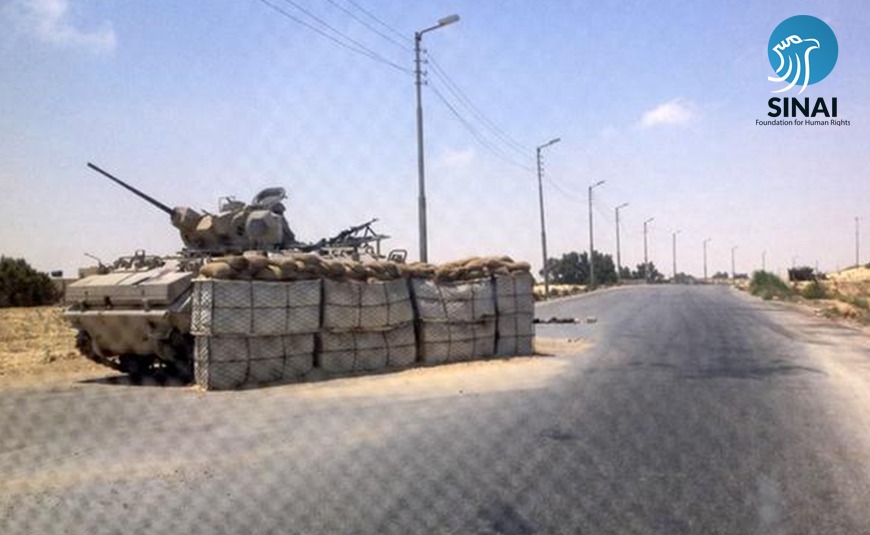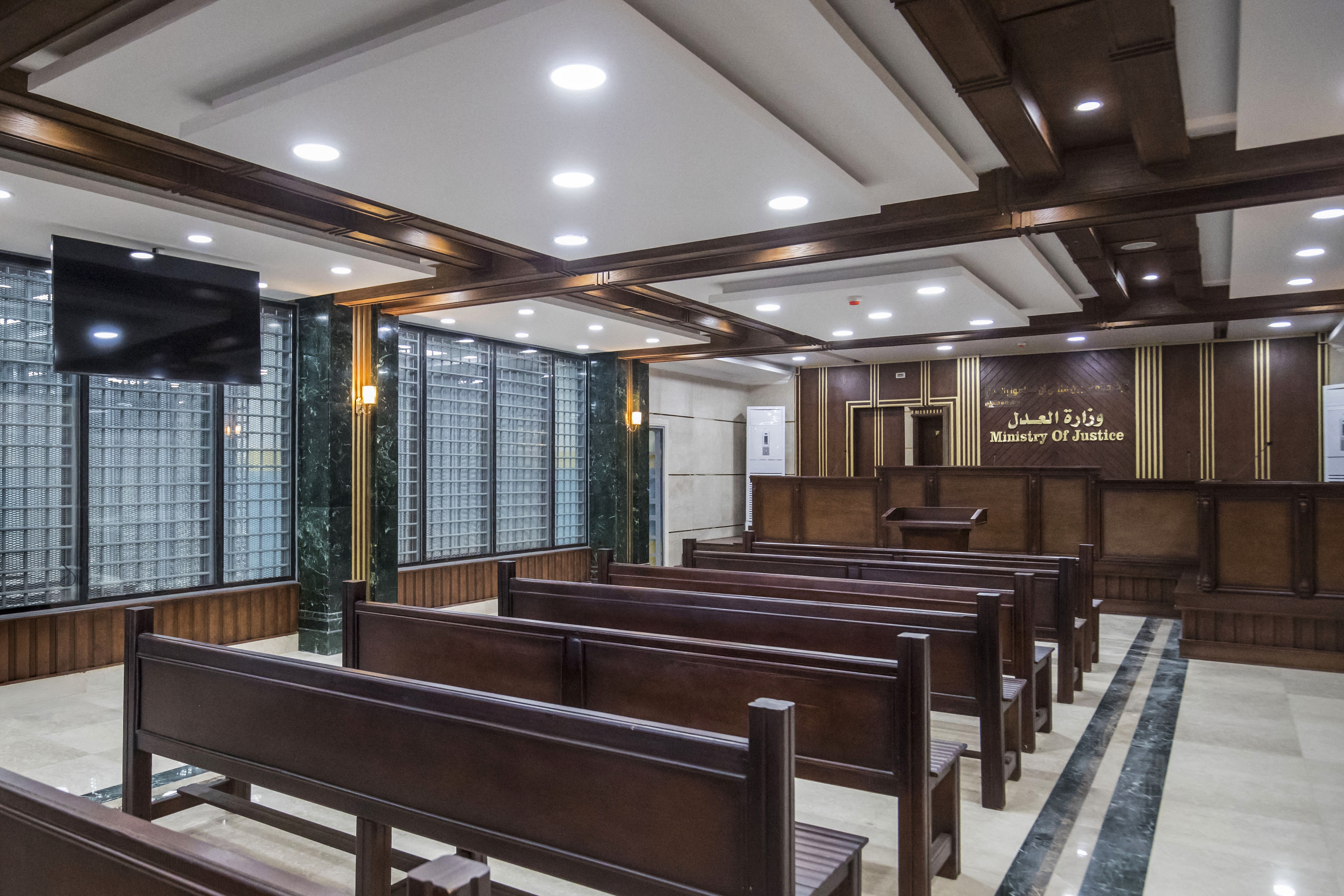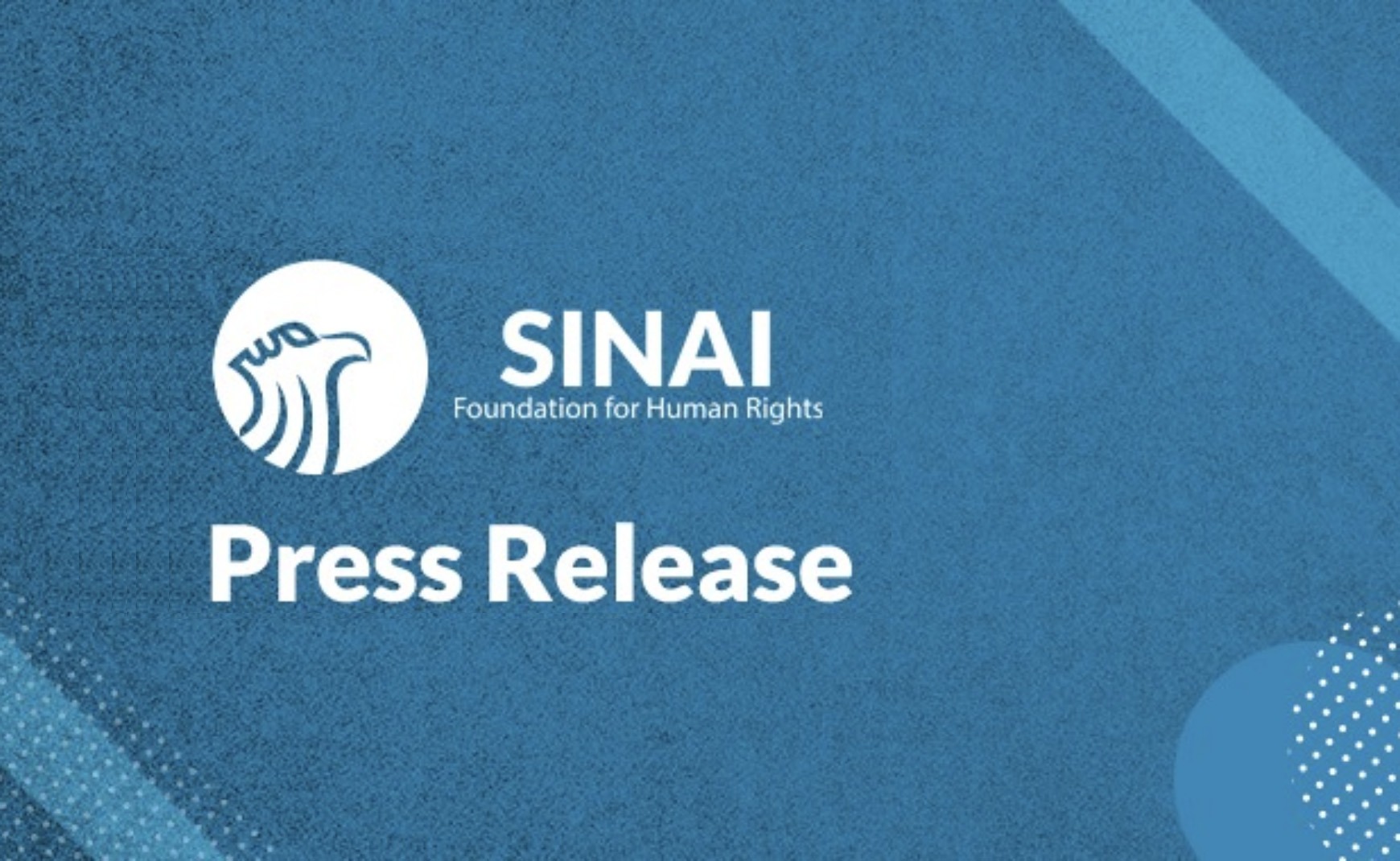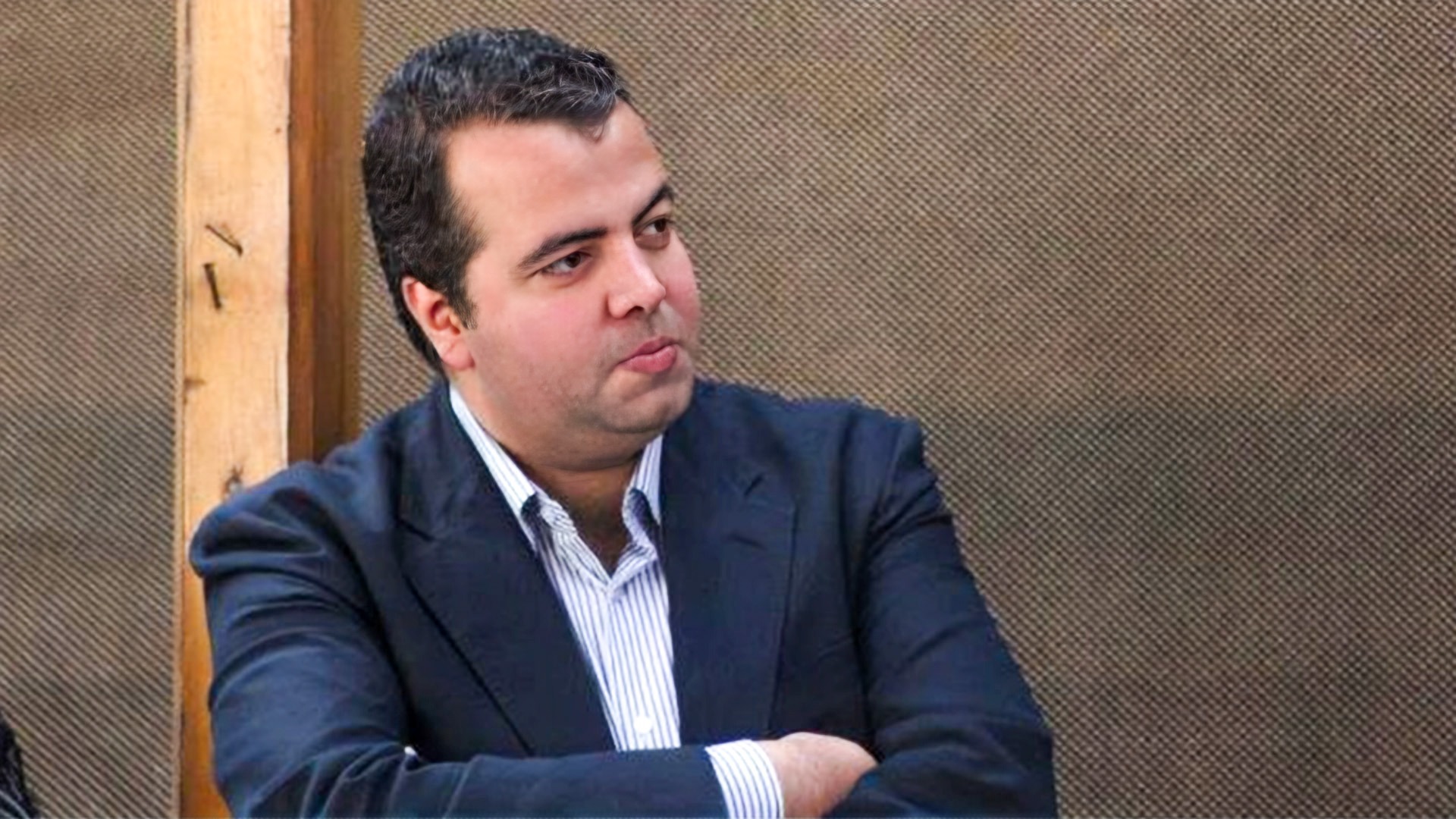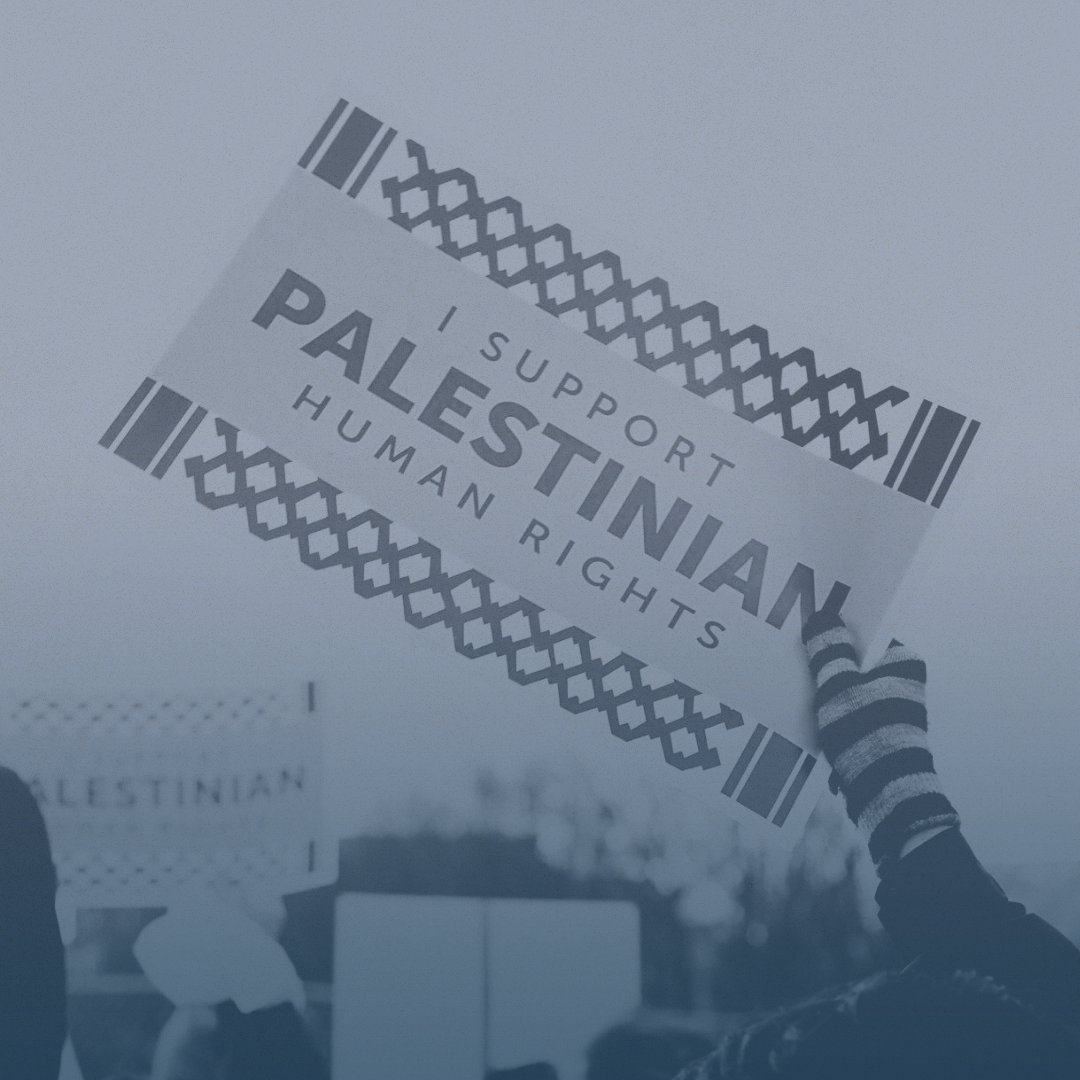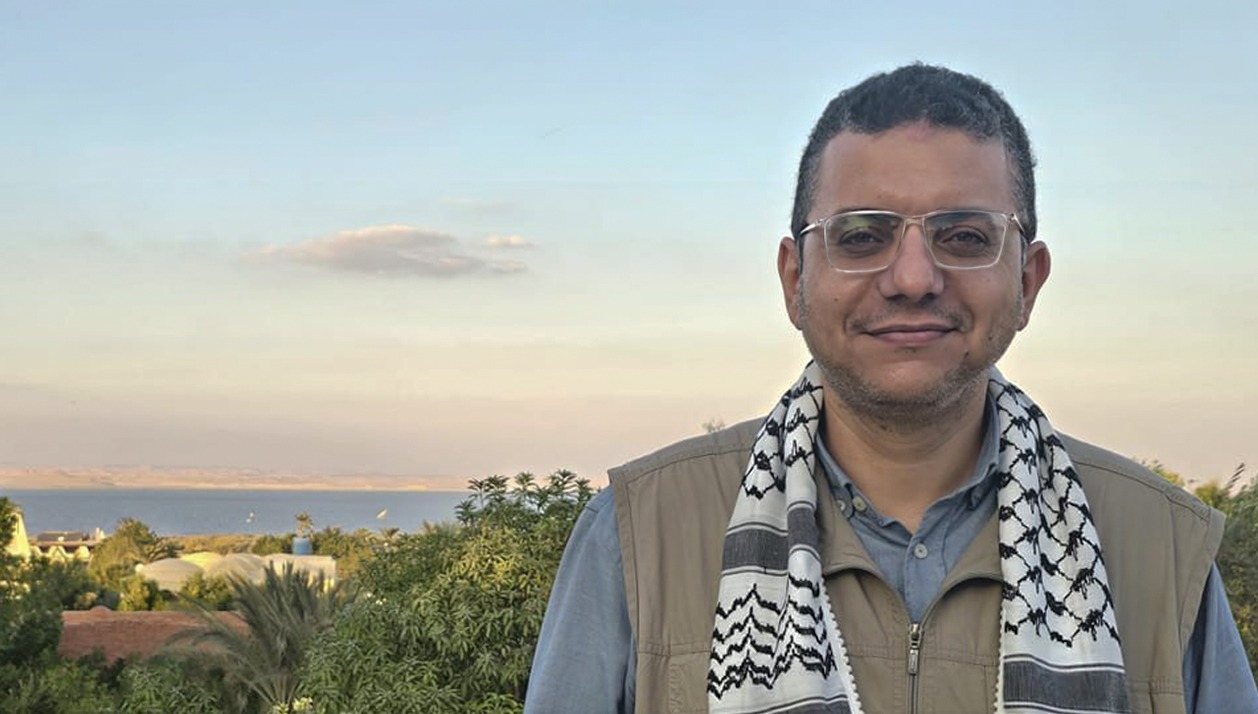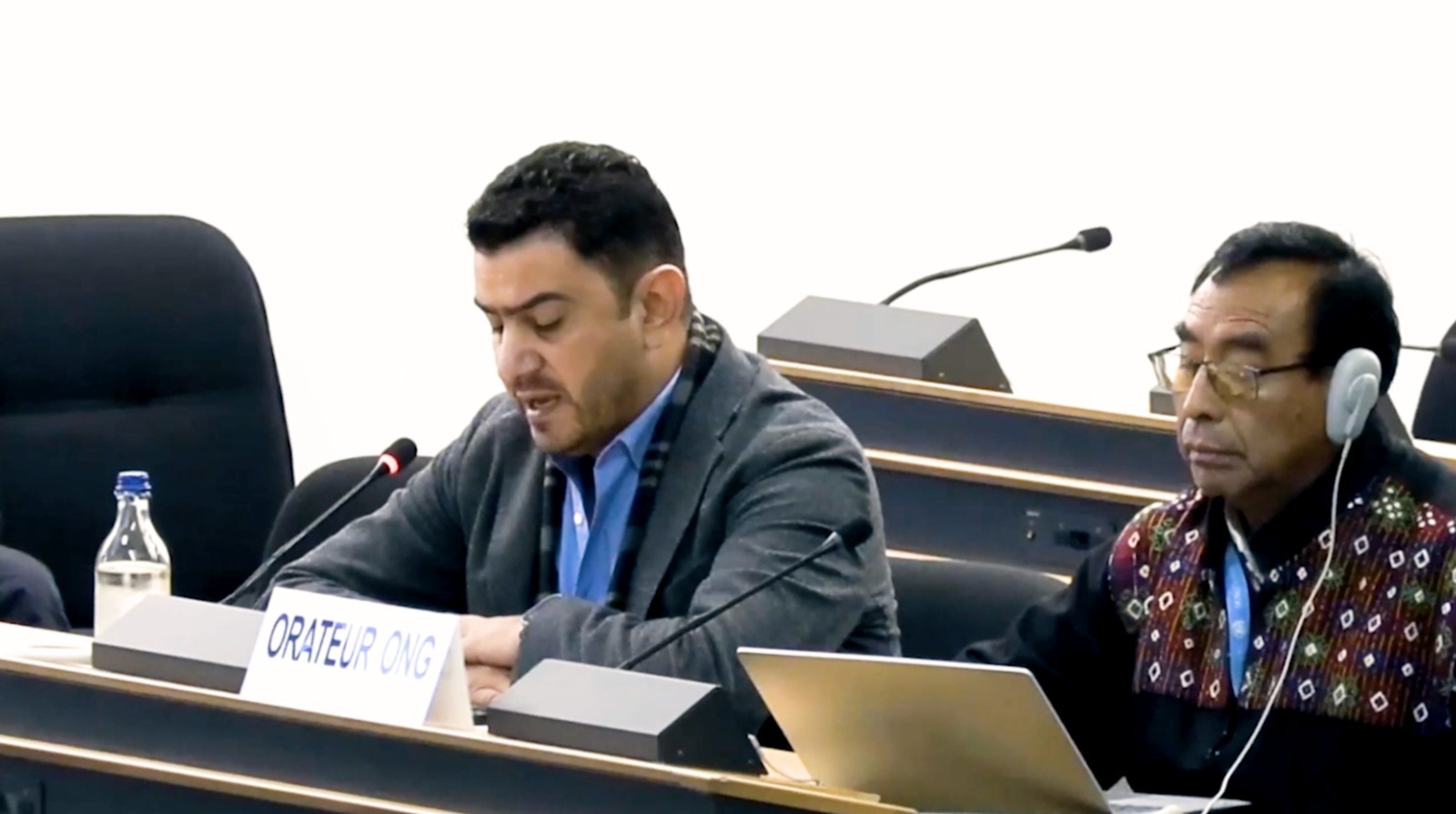“We are sick and tired of the ongoing bloodbath. It has been 7 months since the Takfiris’ retreat from our village, but still to this day people find explosive devices or foreign objects that explode hurting our children. I don’t know when this nightmare would be over, or when the government would take action..”
*Part of a testimony made by a resident of the village of Qatia where a foreign object exploded killing a little girl and injuring another.
Summary:
The Sinai Foundation for Human Rights recorded 4 human rights violations during May of this year. The conflicting parties; Egyptian Law Enforcement forces and the ISIS-affiliate group, the Sinai Province committing two violations each.
A military force killed a 17-year-old in al-Arish close by a military base. He was killed by a gunshot to his head. The Sinai Foundation also recorded the death of a detainee due to medical negligence in Wadi el-Natrun prison, where he was serving a sentence of 18 years. The prison authorities failed to send him to a hospital to treat his critical condition in time.
On the other side, a girl was killed, and another injured in the explosion of two foreign objects, thought to have been planted by ISIS, in two different areas of Bir al-Abd.
During this month, the Sinai Foundation conducted interviews with 4 eyewitnesses and relatives of the victims of the abuses and published their testimonies in this report.
Details of the abuses:
Egyptian authorities and law enforcement forces abuses:
The extrajudicial murder of a child in al-Arish
During the past years following the launch of military operations in Sinai, extrajudicial murder by the conflicting parties has been a recurring crime, and despite that, no trials against the perpetrators have been recorded. Instead, the incidents are written up as against persons unknown, which is a flagrant violation of the international instruments and local and international laws binding Egypt. Those instruments include the African Charter on Human Rights, which states in its fourth article that the Right to Life of civilians is to be preserved at all times, including during conflict. The African Commission on Human Rights has also considered that to be a non-derogable fundamental pillar of all rights.
The Sinai Foundation for Human Rights recorded on 19 May 2021 the murder of Kamil Nasr al-Isawi, 17 years old, after being shot at by military forces situated near the Battalion 101 base, which is the Egyptian military base of operations in eastern Sinai.
The incident took place in an area considered to be a fortified security square due to the position of Battalion 101 and a series of military and security bases, in addition to its close proximity to al-Arish airport, North Sinai province building, and a number of government and security bases.
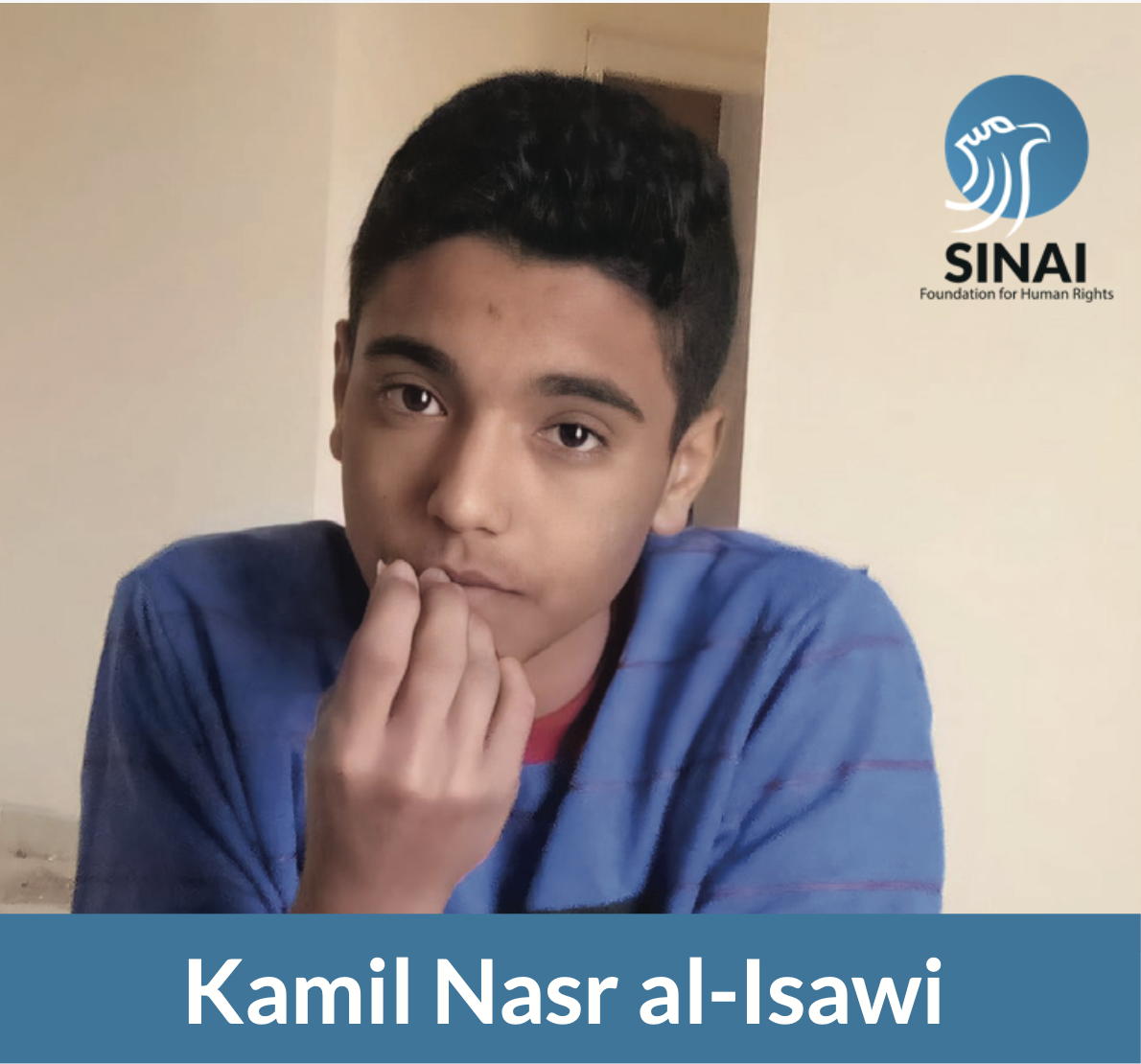
The Sinai Foundation team spoke with a local journalist and one of the neighborhood’s locals to find out what happened. The witnesses stated that Kamil lived with his family in al-Karama neighborhood in eastern al-Arish. He was a student at the agricultural secondary school. He was a hard worker, both studying and working small handiwork jobs, gaining some money to help his family. The witnesses confirmed in their statements that no armed clashes were taking place at the day of the incident, and that the residents did not notice any ISIS militants in the area. They also confirmed that where Kamil was killed was not a military area from which civilians are prohibited, confirming that security forces allow civilians to pass through that area.
An eyewitness residing in al-Karama neighborhood told the Sinai Foundation team: “I personally knew Kamil. He was a man in a child’s body. He had to carry a great responsibility from a young age to help his family. His family are very simple people, like all people of al-Karama neighborhood. He was young, but he worked very hard. He worked in painting houses and moving stones for construction and any other jobs you can think of. The day of the incident, he had breakfast with his mother, told her he was going to work, then left his house at around 12:30 in the afternoon.”
He added: “30 minutes later, at about one in the afternoon, two young men from the neighborhood were walking near an old, abandoned brick factory very close to Battalion 101. One of the soldiers in a military ambush called “Civil Affairs Ambush” called on the young men and told them to ask someone in the factory to leave or else they would shoot him. The young men went to the place where the aforementioned person was and found Kamil lying in a pool of his own blood, bleeding from his head. They were shocked by the scene. They screamed and called on the soldier, telling him that the boy was dead. The soldier asked the young men to stay with him and called an ambulance that probably came from al-Raisa area and arrived quickly. The young men found pieces of iron near Kamil’s body, and it seemed like he had been trying to collect the iron to sell it. The ambulance transferred Kamil’s body to al-Arish General Hospital, then to Port Said to be checked by the coroner, then it was returned the next day, and he was buried in his family’s burial grounds in al-Arish.”
In another statement acquired by the foundation team from a local journalist who closely covered the incident, he said: The factory where Kamil was killed was a subsidiary to Osman Ahmed Osman’s company, and it’s been shut down for a long time. The factory is an open area, not surrounded by a fence, and therefore you can see inside clearly. The factory is about 500 meters away from the Battalion 101 base, and the battalion base in surrounded by a high fence with security cameras. Battalion 101 is surrounded by a security area of 200 meters, surrounded by barbed wire, and it’s prohibited to get close to that area. It’s known among the people of the area that the military allowed inhabitants of the villages of al-Karama and al-Amal to pass through the factory as a shortcut to get to al-Raisa neighborhood, as a way to lessen the suffering the locals had to endure the past years, as taxis and means of public transport were prohibited from going into the neighborhood, as a precaution set by security forces to secure vital security establishments from ISIS attacks.”
He added: “By the things the locals found near the boy’s body, it seems like he went out to look for some scrap iron in the abandoned brick factory, but the ambush personnel were suspicious of him, so they shot him. A single gunshot to his head, specifically his left jaw. The medical report and the hospital doctors’ statements say that the bullet went toward the bottom of the base of his skull, which means that it was shot from a high position. There was great sympathy from the officers at the hospital towards the boy’s family, and that really showed in the way they wrote the report, showing Kamil’s total innocence from any crimes against the security forces. This means his family would be able to be financially compensated, according to the law. The officers were also very careful to finish the burial permit process quickly to help Kamil’s family, but of course the incident was officially reported as Kamil being shot by an unknown source, which is the norm in similar cases.”
The witness added: “I believe that the cause of the state of alert the security forces were in that day is that days earlier, a number of ISIS militants snuck into al-Amal village near the place of the incident and kidnapped 3 civilians, one of whom was a woman, and killed them. That is considered the first appearance of ISIS in this area in a long time. It seems that the security forces suspected Kamil’s behavior because he was sitting on the ground and collecting things. Security forces allow civilians to pass through the area, but I think sitting there is not allowed.”
According to the information given by the eyewitnesses, the area where the child was killed witnessed no armed clashes the day of the incident, that could lead the military forces to use deadly force against targets behaving in a way that could seem suspicious to them. In addition to the fact that the military personnel who shot at the child cannot use not realizing whether the victim’s behavior was dangerous or not as an excuse, as their vision of the situation was clear due to the incident taking place in the morning and in close proximity not exceeding 500 meters. The military base from which the shot was fired is surrounded by a fence with cameras that capture any movement in their vicinity, in addition to the 200 meters of security area surrounded by barbed wire to which the victim did not get close. Other than that, the soldiers could have fired warning shots instead of aiming at the head. All those variables qualify this incident as an extrajudicial murder that requires the perpetrators to be held accountable and brought to justice to get punished according to the law.
The death of a detainee inside a detention center due to medical negligence
The Egyptian and International Humanitarian laws grant prisoners or detainees the right of proper medical care and punish those who prevent prisoners from practicing this right. According to Article 486 of the Egypt Criminal Procedure Code: “If a person sentenced to a freedom-restricting punishment has a life-threatening illness or if execution of the sentence will put the life thereof in jeopardy, execution of the punishment may be postponed.” And the first paragraph of Article 6 of the International Covenant on Civil and Political Rights states that: “Every human being has the inherent right to life. This right shall be protected by law. No one shall be arbitrarily deprived of his life.”
On 5 May 2021, the Sinai Foundation for Human Rights recorded the death of the detainee Ehab Yunes Mohamed al-Abd al-Kashif, 50 years old, from al-Arish in North Sinai. He died while detained in Wadi el-Natrun prison due to medical negligence and the prison authorities’ failure to provide him with the appropriate medical care. He suffered from several illnesses as complications of diabetes, and his medical state was very bad and required him to be urgently transferred to a hospital to have one of his feet amputated.
According to the information obtained by the Sinai Foundation, Ehab had been arrested in 2014 and placed in al-Azouli prison pending cases:
396 for the year 2013 Military Criminal/ Total/ Ismailia. Sentence of 15 years.
374 for the year 2014 Military Criminal/ Total/ Ismailia. Sentence of 3 years.
183 for the year 2014 Military Criminal/ Total/ Ismailia. Acquittal.
These three cases were objectively flawed, as there were no physical evidence or eyewitness reports recorded in the case files. The court issued its ruling in case 396 for the year 2013 based only on the investigations of military prosecution and intelligence services, and in the other two cases based its ruling on the investigations of the second precinct of al-Arish and of National Security.
During his detention in al-Azouli prison, Ehab was subjected to multiple violations including physical abuse, deprivation of food and exercise, and detention in inhumane conditions before being transferred to Wadi el-Natrun prison to serve out a sentence of 18 years, but he died 6 years into his sentence.
It is worth mentioning that his wife died last year after a battle with cancer, leaving 3 girls behind who have no one to support them.
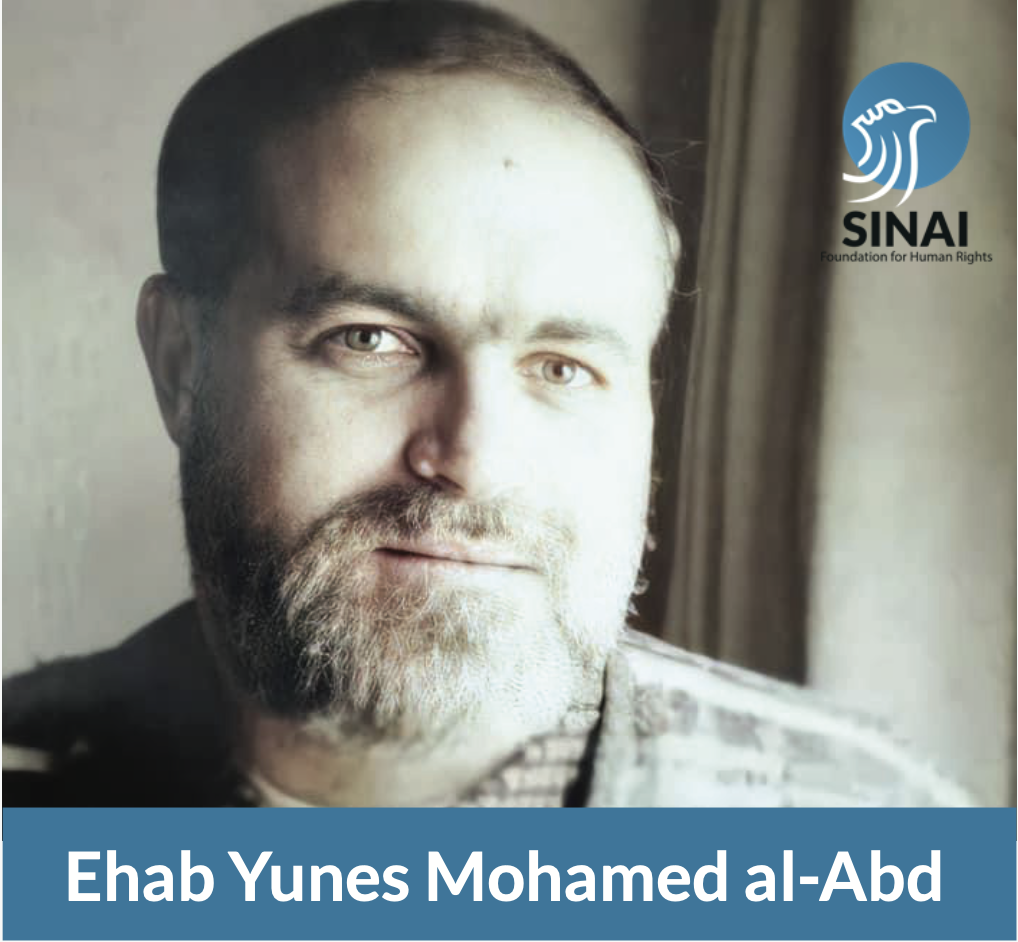
b- ISIS-affiliate group, Sinai Province, abuses
Random indiscriminate weapons killing a child and injuring a man and another child in two different areas of Bir al-Abd
The International Humanitarian Law obligates all parties of an armed conflict to differentiate between civilians and combatants during any conflict. This principle which was emphasized by article 48 of the additional protocol (I) to the Geneva Conventions, 1977 applies to all parties in an armed conflict and stays in effect no matter the type of conflict or the parties involved. Article 51 of the same protocol also prohibits indiscriminate attacks, which are those which employ a method or means of combat whose effects cannot be contained in the way appointed by the law and therefore could hit, in such a case, military targets and civilians with no distinction. Despite that, the Sinai Foundation for Human Rights recorded on 4 May 2021 the death of the child, Sarah Mohamed Suliman, 7 years old, as a result of an injury she received on 10 April 2021 from the explosion of a foreign object near her while she was with a girl called Amal Suliman Muqeibil, 9 years old, who was also injured.
The explosion happened when the girls were playing in front of the house in Qatia village in Bir al-Abd, where they found a foreign object thought to have been left behind by ISIS following their retreat from the villages of the green triangle (Qatia, Iqtiya, al-Ganayen, and Rabea) in early October 2020. The two girls played with the foreign object without realizing how dangerous it was until it exploded. Amal was hit by shrapnel in her eye and was transferred to the university hospital in al-Ismailia for treatment, while Sarah was hit by shrapnel in different parts of her body and was transported to Bir al-Abd central hospital where she died 25 days after the injury.
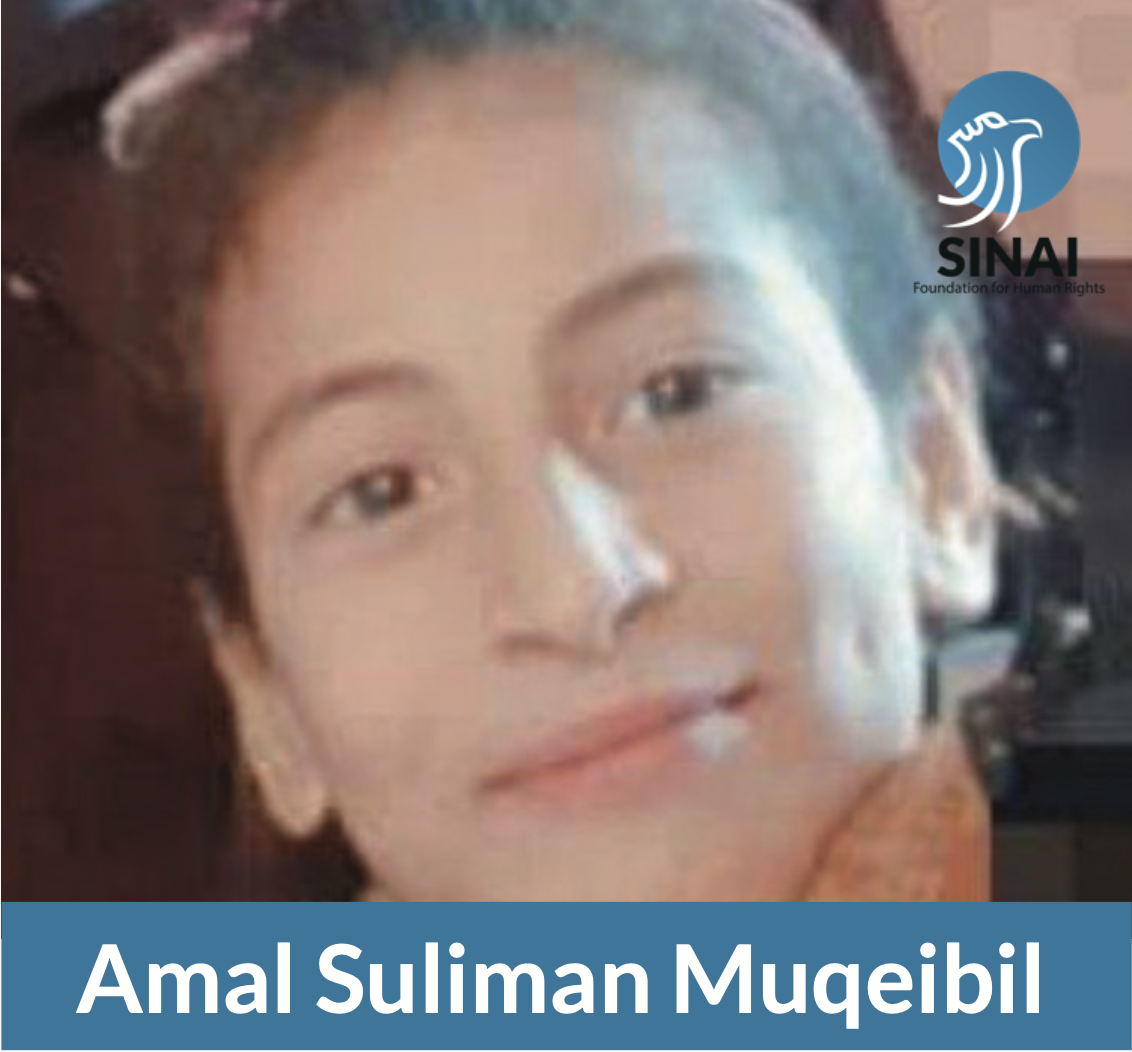
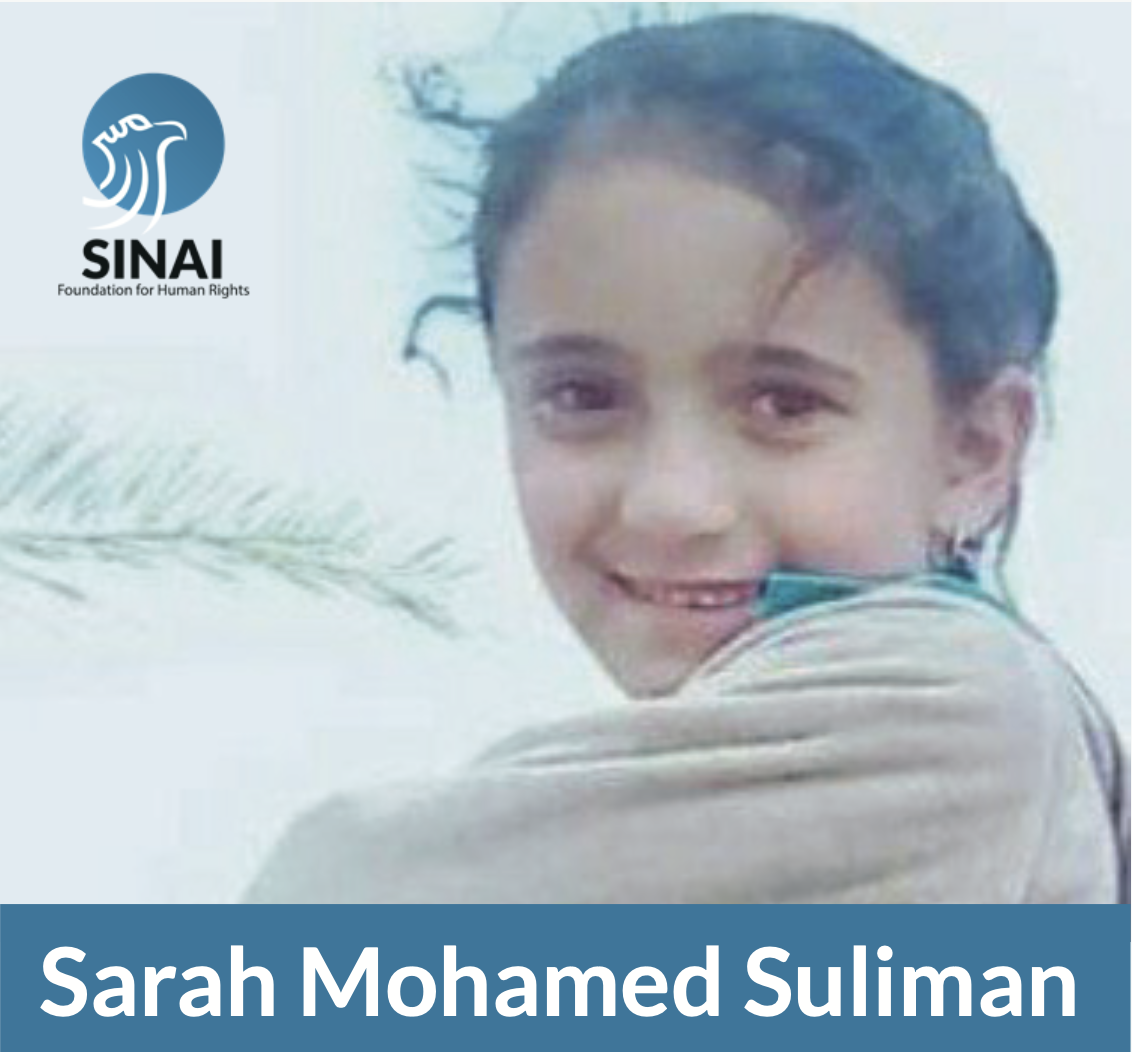
The Sinai Foundation team got in contact with a Qatia village resident, who said: “We are sick and tired of the ongoing bloodbath. It has been 7 months since the Takfiris’ retreat from our village, but still to this day people find explosive devices or foreign objects that explode hurting our children. I don’t know when this nightmare would be over, or when the government would take action to clean the villages instead of waiting for us to find the mines and report them. That’s not my role or my job. The two girls are birds playing. Why does one of them deserve to die and break her family’s hearts, and the other to get a piece of shrapnel in her eye and possibly lose the use of her eye. What did we do to deserve to live in this horror show with catastrophes happening from time to time?”
The witness added: “Since the day we went back to our villages, we’ve been demanding that the government do a sweeping campaign for explosive devices planted by ISIS in our homes, streets, and farms. Till this day, the locals still find explosives and report to the military to come and blow them up. Around 20 civilians from al-Ganayen, al-Marih, Qatia, and Iqtiya died because of this, and the government is still very slow to act. I swear, the locals now search their own farms and around their houses for mines to protect their kids. We also warn our kids and teach them not to touch anything strange. We are always living in fear for our children’s lives from such incidents. We need a solution.”
It is the responsibility of Egyptian authorities in general, and the armed forces in particular, to ensure the security of the area in a manner that completely guarantees the protection of people’s lives. As the International Humanitarian Law obligates all conflicting parties on the field to provide civilian protection on their respective controlled areas. The Sinai Foundation for Human Rights recoded the authorities’ failure to protect civilians from being injured or killed by exploding mines and explosive devices planted by ISIS when leaving the areas they controlled. For example the Sinai Foundation for Human Rights recorded the murder of two women and the injury of a man on 08.10.2020 by the explosion of a foreign object planted inside a wardrobe in a house in Qatia village, and on 24 October 2020, 5 women were killed and 4 others were injured from the same family, due to explosive devices planted by ISIS in the village of Iqtiya in Bir al-And while in control of the area, and the military neglected to comb through the area and remove waste and explosives from it. These two painful incidents were part of similar incidents recorded by the Sinai Foundation in its October report.
On the other hand, on 27 May 2921, Faiz Faris Mohamed, 52 years old, received multiple injuries to his body due to the explosion of an explosive device planted by ISIS in “Qasrawet” in northern Bir al-Abd. According to medical sources that spoke with the Sinai Foundation, the injured was transported to Bir al-Abd central hospital to receive the necessary aid.


